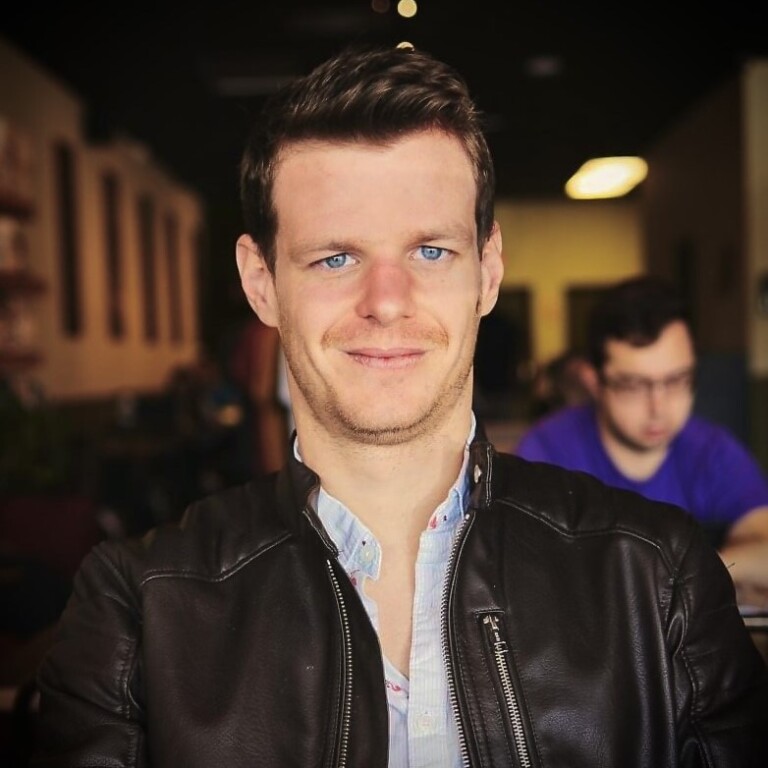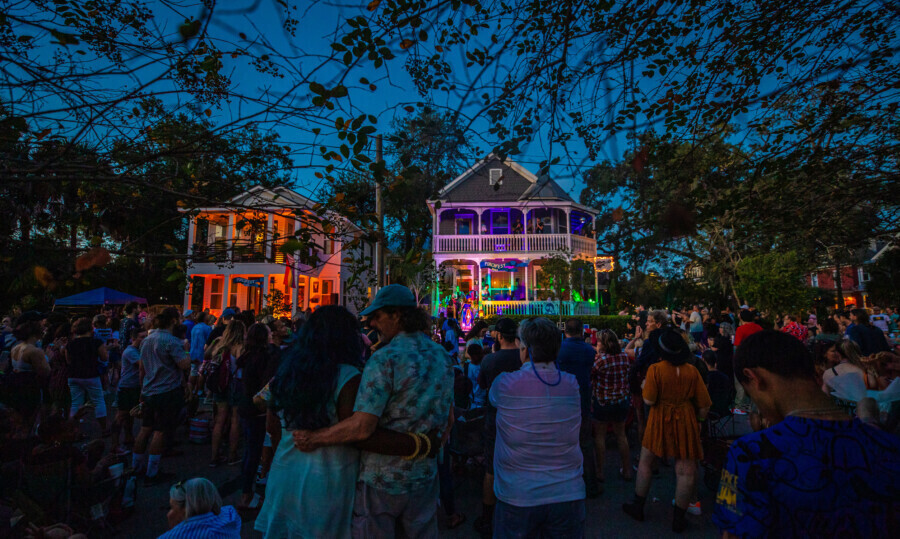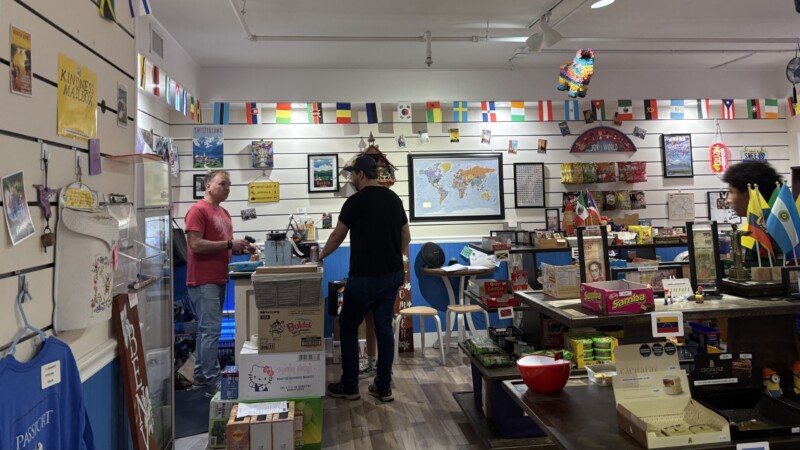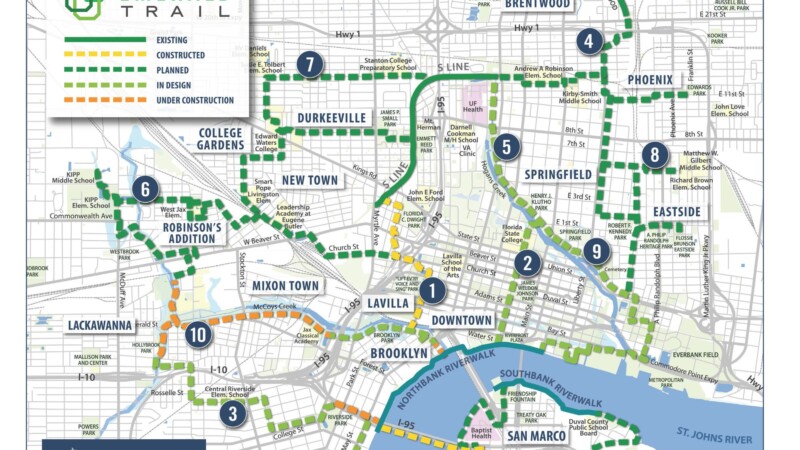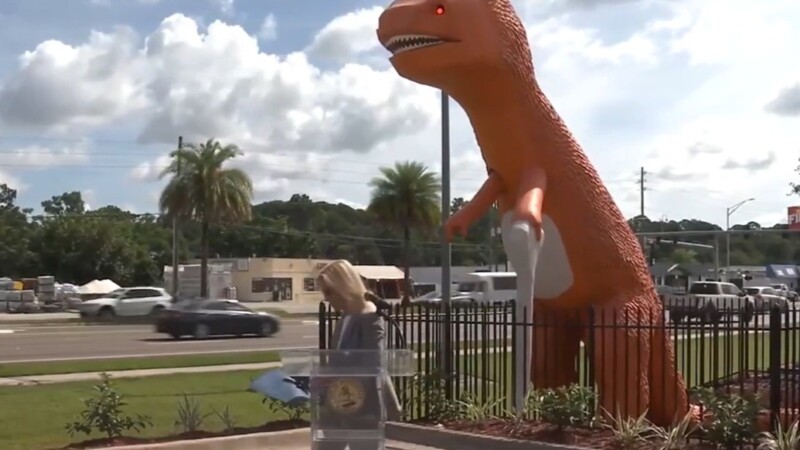Nestled in the heart of Jacksonville’s oldest neighborhood, the 9th annual Jacksonville PorchFest this month showcased the diversity of culture and individuals that call our city home. As thousands gathered to revel in each other’s company, it is easy to see why this occasion continues to cement itself in the hearts and minds of Springfield residents. With the backdrop of some of Duval County’s oldest and most unique homes, festival-goers are given a glimpse of an achievable future – one in which a collection of partnerships, investments, and visions blossom into a city that embraces its love for community-engagement and growth.
The growth of PorchFest over the last decade also demonstrates the necessity of a long-term, all-encompassing approach toward local investment and cooperation that 1. Builds networks of community-focused, mission oriented groups and 2. Understands that growth requires investment in infrastructure, small businesses and sustainability.
It takes a village
Continuing Jacksonville’s unique and proud history of nonprofit success, Springfield Preservation and Revitalization (SPAR) has been indispensable in facilitating grants, organizing events, interconnecting businesses, and partnering directly with city government for appropriations and legislative solutions since its inception in 1974, turning concepts like PorchFest into a reality. Alongside public-private partnerships and a plethora of dedicated nonprofit organizations (such as Groundwork Jax, SAMBA, the Community Foundation, and others), what was once the heartbeat of our city has shown signs of returning as such.
While it took decades of work to build a complex structure like that in Springfield, one of the major components missing in city planning more broadly in recent years has been the willingness to act within the scope of a cohesive, complementary plan.
In previous mayoral administrations, the emphasis on a long-term vision for growth was largely foregone in favor of short-term projects that could be completed in merely a few years (In fact, the last major comprehensive plan that dramatically shifted the conditions for linking publicly funded projects came in 2000 with the Better Jacksonville Plan).
However, it appears this is one thing in particular Mayor Donna Deegan is seeking to change. Having already passed a historically large budget that increased focus on resilience programs, infrastructure (roads, sidewalks, public transit, etc.) and small business development, the new programs outlined in the $25 million transition package seem to get the ball rolling on the type of arts and culture programs found in other successful urban areas across the country.
If leadership in City Hall can build consensus on being a more active and direct partner to local groups, the revitalization of often-ignored areas around town may be more feasible than we think.
Built to last
While reveling at celebrations such as PorchFest and the Jacksonville Jazz Fest, it is easy to miss the stepping stones that make these events possible (and yes, this includes literal stepping stones, as decimated sidewalks tend to not mix well with large crowds and alcohol). It takes years of planning, development projects, budget/Capital Improvement Projects, and grants across a smattering of divisions, public-private partnerships, and nonprofits to incubate and activate a neighborhood.
The last several years of big-ticket investment items have seen a lack of emphasis on the nuts and bolts that make our city run smoothly, in favor the flashy new exterior of such things as the Four Seasons, the failed Lot J development, and the multitude of DIA projects currently in development purgatory.
At this same juncture, rents have skyrocketed across the city by an average rate of 36%, affordable housing supply continues to be tens of thousands of units below the level of demand, the same neighborhoods continue to flood and disrupt day-to-day life, and million-dollar capital investment projects with developers divert resources from solving problems as basic as waste management.
As a city, you can’t begin to establish a functioning long term vision if “needs” take a back seat to “wants.”
An important note here: This isn’t to imply public-private partnerships, DIA investments, or capital improvements are bad decisions. On the contrary, they offer necessary support to encourage business development in a diverse range of communities that need it. The new $1.28 million in small business micro-grants allocated in the city’s 2023 budget is undoubtedly a step in the right direction. But a roof cannot stand on its own – its supports need to be structurally sound. And rather than viewing a neighborhood for its structures, investment potential, or development capabilities, we should be ensuring that we are investing in its residents. It appears our mayor would agree, securing:
-$9 million in public service grants
-$10 million for resilient public infrastructure
-$21 million for restructuring and streamlining zoning procedures
-$8.25 million for the Cultural Council of Greater Jacksonville
-$26.8 million for transportation infrastructure
As we approach the coming year, a number of generational decisions will need to be made, the most glaring of which represents potentially billions of dollars of capital injection into historic neighborhoods on the Eastside and elsewhere in the Urban Core. It’s not just about the dollar figure for potential stadium renovations – it’s what those dollars say about our local government’s approach toward empowering its own people.
According to Ed Randolph, executive director of economic development for the city of Jacksonville, “Our goal is always to increase the quality of life for all of Jacksonville by creating both short-and long-term opportunities. That means everything from supporting small businesses to redeveloping neighborhoods by encouraging private investment and high-wage job opportunities to encouraging Downtown development. All of our goals align with neighborhood revitalization and vibrant events like PorchFest.”
Rather than cut blank checks (as we have in the past), using PorchFest and its impact on Springfield should be a lens through which we measure success: building partnerships, encouraging business reinvestment in historic neighborhoods, strengthening nonprofits, giving our local arts a medium of expression, and providing the basic infrastructure to connect residents to each other.
Only together can we build a Better Jacksonville – for all.
Lead image: A PorchFest crowd at the 2022 event | Toni Smailagic
